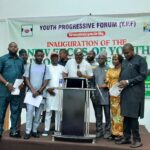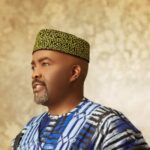Ahead of the Bayelsa State governorship election scheduled for November 11th, 2023, Bayelsa-based journalists and Civil Society Organisations (CSOs) have appealed to the Independent National Electoral Commission (INEC) to provide emergency medical services at polling units in order to encourage pregnant women, nursing mothers and sick people to come out to cast their votes on election days.
This appeal was part of discussions during a two-day workshop tagged “IPC/CEMESO Media Roundtable/Engagement Toward Bayelsa Governorship Election” powered by European Union (EU), and facilitated by the International Press Centre (IPC) and Centre for Media and Society (CEMESO) aimed at equipping about 65 print and broadcast journalists on gender-based reporting in Yenagoa.
According to the election stakeholders which included representatives of the Independent National Electoral Commission (INEC) and Bayelsa State Police Command, there is also a need for journalists to add more women and vulnerable groups as news sources in order to give Increased voice and meaningful participation of all genders in political decision-making at all levels.
It was further pointed out that it is high time the National Assembly review the INEC Regulations & Guidelines for the Conduct of Election, 2022, and make it mandatory for the electoral umpire to provide help for sick people, pregnant women and nursing mothers to vote on election day, as this is a top priority and key component when it comes to providing the dividends of democratic to electorates.
Delivering a lecture titled “Bringing Gender Perspective to Bear on the Reportage of Bayelsa Governorship Election”, Dr Titilayo Osuagwu, a lecturer with the Department of Broadcasting, University of Port Harcourt, Rivers State, said that there is a need for the media to give Increased voice, agency and meaningful participation of all genders in political decision-making at all levels.
She explained that the goal of bringing gender perspective into news reporting means to provide resources and opportunities to men and women to compete equitably and benefit from all aspects of life, adding that there is a paucity of recognition of gender perspectives in election reportage.
She further said “The lack of gender perspective often impedes genuine development in all spheres as it increases inequality and slows down the attainment of Sustainable Development Goals (SDGs). Studies of the 2019 General Elections by IPC and CIMESO show that men trumped women as sources of political stories; 85.7% against 4% (Arogundade, 2019).
“Men and women as actors/stakeholders in development. This is evident in Sleeping Beauty and Cinderella- the union of opposites for societal advancement. The media can set the agenda to make the sheep and the wolf lie together, tilt the dominance and balance the sphere (Usua & Osuagwu, 2010).
“Female journalists should become more interested in election-related issues. For example, female correspondents in election reporting will serve as conduits for political change by providing specific women’s perspectives that could transform discriminatory structures.
“Journalists should give prominence to political happenings at the grassroots and capture rural political activities that relate to women in the pre-election, election and post-election periods. Female journalists should be deliberative in searching for stories with women as players/protagonists.
“Examples of such are reportage about women contenders as gubernatorial candidates and deputies. Follow their activities and get their success stories to inspire other women. Reportorial style should debunk women’s political subordination and stereotypes- this can be done through feature stories and opinion pages.”
Earlier in her welcome address, the Programme Manager, International Press Center (IPC), Stella Nwofia, said that the event is organised to critically examine the interconnections between the public, the media and the electoral processes towards developing an agenda that seeks to strengthen the role of the media and the citizens in engendering a credible electoral process.
She said “As we have communicated to you all, this workshop is one of the activities being implemented by IPC, as lead partner, and the Institute for Media and Society (IMS) under Component 4: Support to Media of the European Union Support to Democratic Governance in Nigeria (EU-SDGNII) project.
“We believe that the media have a critical agenda-setting role that can enable the integrity and credibility of elections. Not only must news mediums take a lead role in ensuring that citizens are adequately mobilised, but they should also ensure that the entire process is accountable by being open to public scrutiny.
“The thrust of our submissions at this workshop would be that we bring the required professionalism and inclusivity to bear on the coverage and reportage of the ongoing electoral process in the state to enable the Independent National Electoral Commission (INEC) to deliver on free, fair, peaceful and credible Bayelsa governorship elections come November 11, 2023.
“Doing the above will require that journalists provide balanced coverage of the issues in the campaigns, document the campaign promises for post-election follow-up on their fulfilment and provide an appropriate education for the voters so that they can be well informed about the candidates and their programmes and the voting processes.
“Therefore, the media should relay the information citizens require to enable them to make informed judgments, monitor government and others and reveal abuses of political power, report politics day-to-day as well as during election campaigns, and provide information about registration and voting.”
Also speaking, the Chairman of Bayelsa State Council of the Nigeria Union of Journalists (NUJ), Mr Samuel Numonengi, hailed the organisers and noted that journalists in the state had always braved all odds and risks to their lives in the discharge of their duties.
He noted that scores of journalists in the state survived boat mishaps and had their devices, including mobile phones damaged by water.
Numonengi stated: “What the police said about the safety tips and how journalists should dress while going out to cover election is apt and some of the things they have to do.
“Also, on the side of the INEC, journalists need updates from time to time to enable them adequately inform the public about their activities in the conduct of the polls. We expect more training like this for journalists before the Bayelsa governorship election.”
YOU SHOULD NOT MISS THESE HEADLINES FROM NIGERIAN TRIBUNE
Niger coup: Northern Senators kick against ECOWAS’ proposed military onslaught
Northern Senators Caucus have expressed strong reservations against the proposed military onslaught in…
‘I tweeted in anger’, Tinubu’s ministerial nominee, Tijani begs Senate over unpatriotic tweets
A ministerial nominee, Dr Bosun Tijani, on Saturday, apologised to the Senate over non-patriotic tweets he tweeted prior to…
I once had a failed marriage —Jim Iyke
Nollywood actor, Jim Iyke has revealed why he likes to keep a low profile despite being constantly misconstrued by…
BBNaija All Stars: My boyfriend offered 120m, I said no — Mercy
BBNaija Season 8 All-Star Edition housemate Mercy Eke revealed that her boyfriend offered her 120 million naira in…
Tinubu’s risky Niger gamble, Shetty’s embarrassment
PRESIDENT Bola Ahmed Tinubu yesterday wrote to the Senate to inform it of an impending “Military build up and…
PHOTOS: Morocco defender, Nouhaila Benzina, makes history as first player to wear hijab at World Cup
Moroccan defender, Nouhaila Benzina, has made history as the player to wear a hijab at the…






